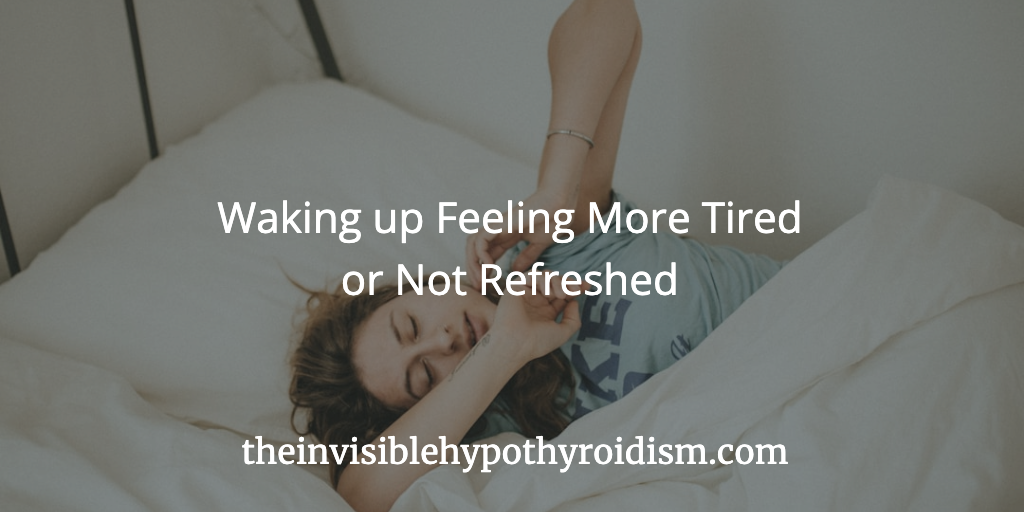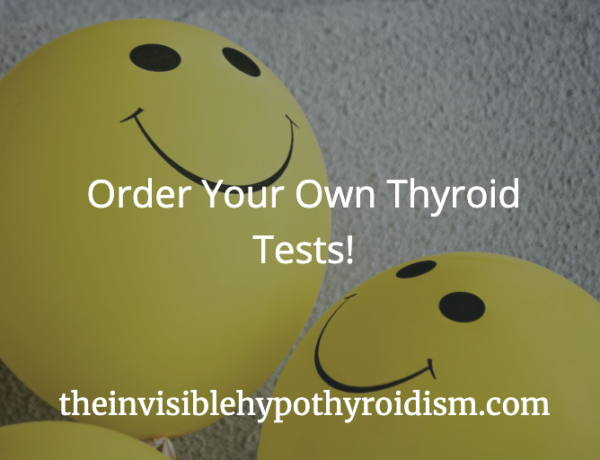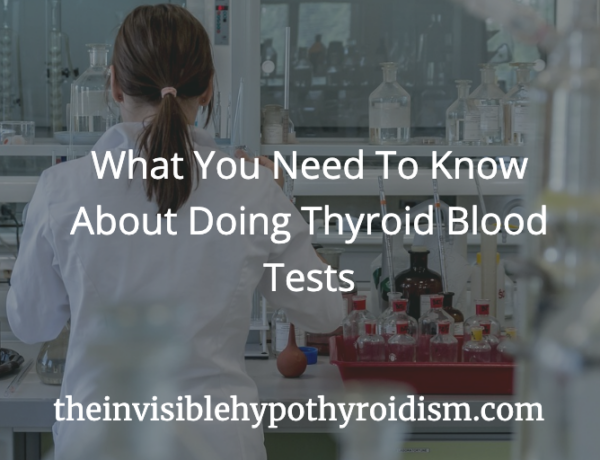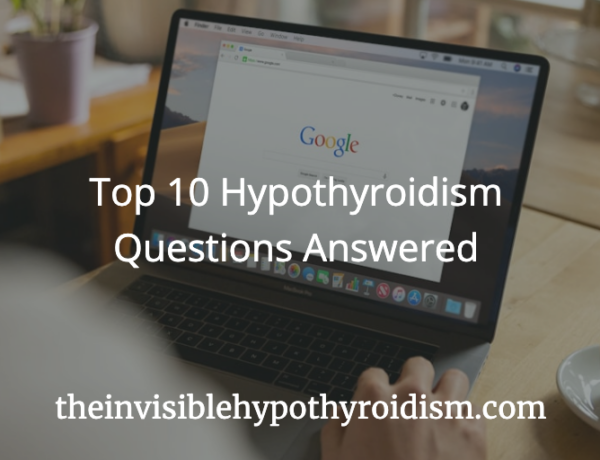Originally published on 27th May 2016 Last updated on 8th April 2024
A common symptom that people with hypothyroidism (also called an underactive thyroid) have is waking up not feeling refreshed, and, commonly, actually waking up feeling more tired than when they went to bed the night before.
I experienced this and it baffled me. I thought “How does that make sense?! I got ten hours of sleep last night and still woke up feeling more tired than when I went to bed!”
What are the possible causes for this?
Your Adrenals
The adrenal glands, two little glands that sit on top of each kidney, produce hormones and cortisol for many bodily functions, and these could be behind the problem.
Cortisol helps you respond to stress and has many other important functions, including regulation of blood sugar, metabolism of fat, protein and carbohydrates and immune responses.
However, with adrenal dysfunction (it is more accurately referred to as hypothalamic-pituitary axis dysfunction), your adrenal glands produce too much or not enough cortisol, and this can cause issues such as disturbed sleeping or struggling to really feel energetic in the mornings.
Cortisol should be at its highest when you wake, slowly falling as the day goes on. The low levels at night time ensure you’re ready to sleep, and the low levels throughout the night ensure you get a good nights’ sleep, before it rises again around the time you wake.
However, if the adrenals’ output of cortisol becomes dysfunctional, this can affect energy levels and quality of sleep.
The slope of cortisol, which we typically see at its highest first thing in the morning and gradually dropping down over the course of the day, can be disrupted when we are chronically stressed.
Chronic stress may alter this ideal slope of high cortisol in the morning and decreasing throughout the day, to:
- low cortisol all day
- high cortisol all day
- low cortisol in the morning and high cortisol at night
Our bodies can respond very interestingly to stress by causing an alteration in this cortisol slope, and this is what we refer to as adrenal dysfunction.
When thyroid patients wake up still feeling tired, or even more tired than when they went to bed, they should really check their adrenal health, as these symptoms can be caused by cortisol levels being too high or too low.
This was the case for me.
My Experience of Adrenal Fatigue
I had my cortisol levels tested and discovered that I had high cortisol all day, causing my on-going fatigue, struggles to fall sleep in the evenings and then stay asleep; waking multiple times, sleep talking, tossing and turning and even sometimes sleep walking.
See my post on feeling ‘tired but wired’ here.
The best way to test your cortisol levels is by completing a 24-hour four point saliva test, to see how your levels rise and drop in a day, so you can compare them to the ideal rhythm of being top of the range in the morning and fall throughout the day so they’re bottom of the range by nighttime. If your doctor won’t do this, you can very simply order it yourself and complete it at home. You can find testing options here and here.
I have blogged about correcting my adrenal dysfunction since the beginning and I am pleased to say that it has been addressed now after unearthing the root causes behind it. Read how I addressed it here.
I no longer wake up going ‘Urrrggghhhh, why do I feel more tired than when I came bed at 9pm last night?!’ and instead feel much more rested.
I honestly made peace with the fact that I would never wake up feeling refreshed or at least not horrendously tired, ever again, and that for the rest of my life, getting out of bed would be the worst part of every day.
Have you ever experienced this frustrating symptom?
If you have ongoing fatigue with hypothyroidism, see this post here: 10 Ways To Solve Ongoing Thyroid Fatigue
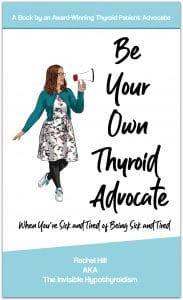
The book Be Your Own Thyroid Advocate: When You’re Sick and Tired of Being Sick and Tired, which builds on this article in detail and covers how Rachel overcome thyroid, adrenal and other issues.
You can click on the hyperlinks in the above post to learn more and see references to information given.
References:
[1] https://thyroidpharmacist.com/articles/pregnancy-announcement/

